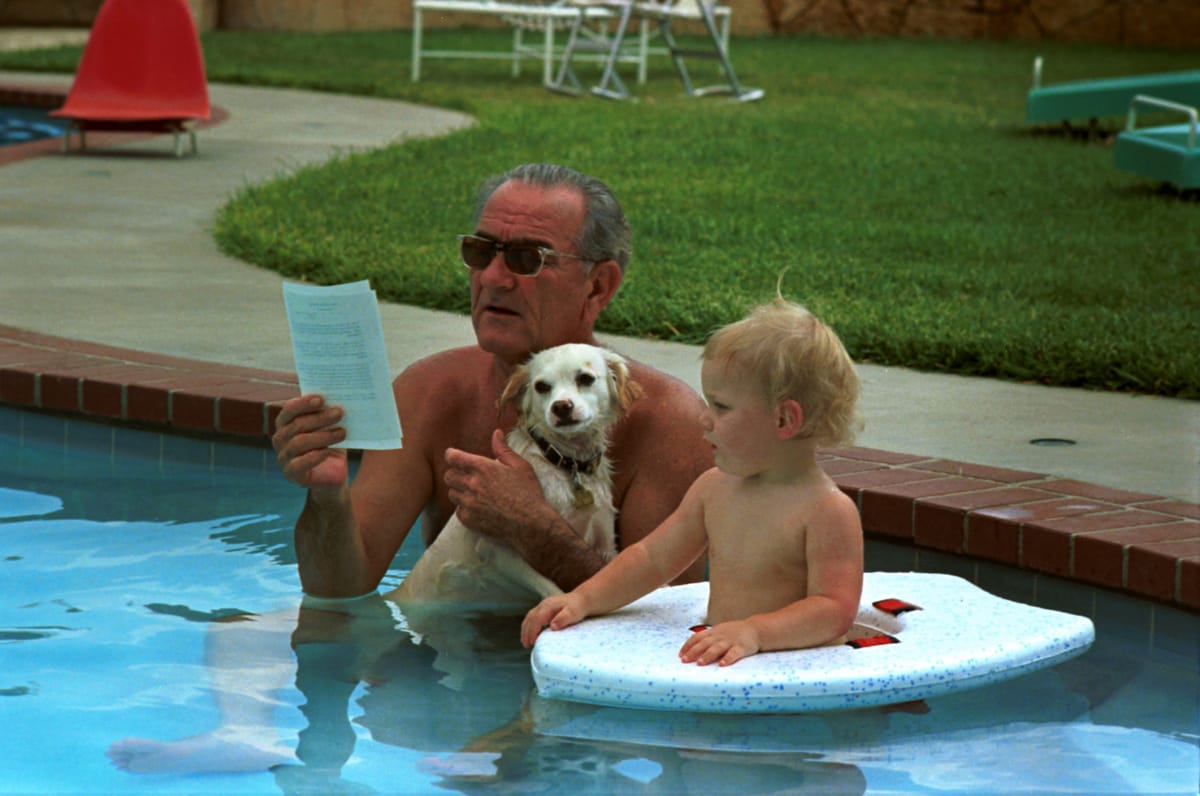Understanding Why Politicians Take Foolish Votes

It's Washington D.C., 1957, Frank Church's first day as a United States Senator from Idaho. And Majority Leader Lyndon Johnson is turning the screws on him.
"Now Frank, you are the youngest member of this Senate, and you have a great future..." the 6'4" Majority Leader who's built like a bank vault says to the young Senator Church on the Senate floor. "There's a lot going for you. But the first thing you ought to learn is that in Congress you get along by going along."
Senator Church is coming off a nail biter of an election. His wife is watching him from up in the visitor's gallery. But instead of basking in his newfound stature, he is being taken to school by Lyndon Johnson.
The Majority Leader is reminding Senator Church that he might be a very big deal back in Idaho, but here in the storied United States Senate, he is a very small fry. Most legislative bodies run on seniority – the longer you've served, the more heft you have to get what you want. Senator Church has none of that yet. But he could, Johnson dangles out there, if he just plays by the rules.
"Now we've got a motion here that [Senator] Clinton Anderson offered," Johnson continues," and it relates to a matter that is not important to your state. People of your state don't care how you vote on this...but...it means a lot to me. So I just point this up to you."
The vote is on a technical procedural motion that would clear the way for civil rights legislation; the storied United States Senate loves process and procedure.
And what makes Johnson a wickedly good arm twister is that he knows his members and their constituents; he knows most Idahoans could care less about this technical vote. Johnson, however, cares very much. In fact, he needs Senator Church's vote to get to the next procedural motion on the legislation. And he will be closely watching what the junior Senator does.
"Your first vote is coming up," the Majority Leader reminds the junior Senator. "And I hope you'll keep it in mind, because I like you, and I see big things in your future, and I want for you to get off on the right foot in the Senate."
Translation: I'll scratch your back - and leadership has a lot of tools to scratch, like putting you on the Committees you want, bringing your bills up for a vote, diminishing opposition to your priorities - if you scratch mine.
And it's just as true today as it was then. The rules of policy power remain, in many ways, unchanged. If one of the politicians who represents you - whether on the local, state, or federal level - takes a vote that you can't quite square, that's discordant with prior positions they've taken, it's helpful to remember that there can be multiple calculuses at play when politicians cast a vote. And a big one, especially for more junior politicians, is the bidding of their party leadership. Not honoring that can carry heavy consequences.
Now Senator Church, a rookie, makes a rookie mistake: he doesn't vote for the amendment. And Lyndon Johnson, the most powerful Democrat in the country, the man who decides if your bills come to the floor or not, the man who could make or break your career, gives Church the ice cold shoulder for the next six months.
*A historical footnote: Senator Church works overtime to thaw the ice with the Majority Leader, and eventually became a protégé of his, gets appointed to his top Committee. In other words, Church becomes powerful by playing by power's rules. Which the Majority Leader had laid out for him on that day back in 1957.
